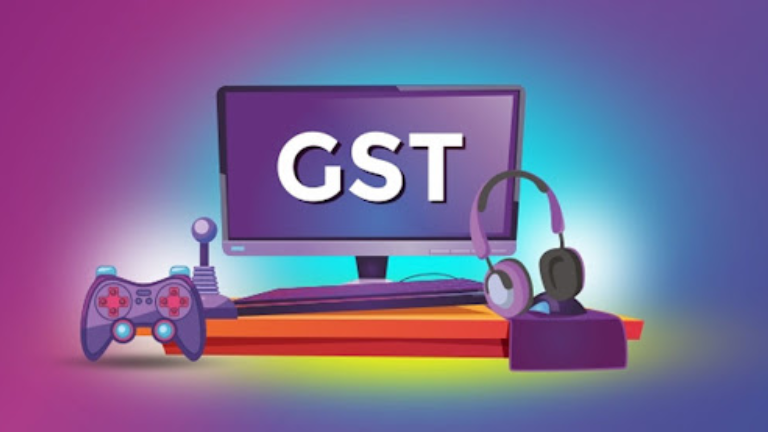Retrospective Taxes: A Roadblock to Online Gaming Industry Growth
The online gaming sector is no longer just a medium of entertainment; it has evolved into a strategic economic asset capable of driving substantial growth, generating employment, and spearheading technological advancements. India, with its tech-savvy youth and rapidly expanding digital economy, holds immense potential to become a global leader in online gaming. However, this promising trajectory faces a critical challenge—retrospective taxation, which threatens to hinder growth, deter investment, and stifle innovation.
Retrospective Taxes: An Unstable Business Environment
Eroding Investor Confidence
Retrospective taxation, by definition, imposes levies on past transactions and earnings before current tax laws were enacted. This creates an unpredictable business climate, severely impacting investor sentiment.
For an industry that thrives on constant innovation, this uncertainty discourages venture capitalists and private equity firms from investing in startups. The risk perception escalates, resulting in limited funding for research, development, and expansion. This, in turn, affects:
✅ R&D advancements, slowing down technological progress.
✅ Talent retention, as professionals seek opportunities in more stable sectors.
✅ Overall industry growth, leading to stagnation in competitiveness.
Financial Strains & Risk of Insolvency
Most online gaming companies operate on thin margins, meaning immediate tax liabilities force businesses to divert essential funds from:
✔ Operations
✔ Marketing
✔ Technology upgrades
This financial strain reduces cash flow and limits access to credit, as financial institutions hesitate to extend loans under uncertain regulatory conditions. Smaller firms, unable to meet these tax obligations, risk bankruptcy, shrinking industry diversity and competitiveness.
Growth Decline & Market Instability
Historically, the online gaming sector has boasted impressive CAGR (Compound Annual Growth Rate). However, fiscal uncertainty and tax burdens have slowed expansion, leading to:
🔹 Delays in scaling operations
🔹 Reduced revenue projections
🔹 Investor hesitation, causing stagnation
This negatively impacts industry confidence and positions India at a competitive disadvantage globally. As other nations implement gaming-friendly policies, they attract investments and talent, leaving India struggling to keep pace.
Beyond Gaming: Economic & Technological Implications
The online gaming industry’s contributions extend far beyond entertainment, impacting several key sectors:
Economic Growth & Job Creation
A thriving gaming sector can significantly contribute to GDP growth, providing employment across:
✔ Game development & design
✔ Software engineering & AI development
✔ Esports & content creation
By stifling this industry, government tax policies risk reducing tax revenues in the long run due to lower profitability and sluggish growth.
Driving Innovation in AI, AR & VR
The gaming sector drives cutting-edge innovations in:
✅ Artificial Intelligence (AI)
✅ Augmented Reality (AR)
✅ Virtual Reality (VR)
These advancements have cross-industry applications, benefiting:
- Education (immersive learning tools)
- Healthcare (virtual simulations for medical training)
- Manufacturing (AI-driven automation)
Restricting growth through retrospective taxes could curb India’s technological progress in these crucial areas.
The Rise of Illegal Offshore Gaming Platforms
A key unintended consequence of stifling legal gaming companies is the proliferation of unregulated offshore operators. If domestic firms struggle under heavy taxation, players may shift to foreign gaming platforms, resulting in:
🚫 Lack of consumer protection & security risks
🚫 Revenue loss for Indian companies
🚫 Tax evasion, reducing government earnings
Encouraging a regulated, thriving gaming ecosystem is a win-win for the industry and the government, preventing revenue leakage to unregulated markets.
The Need for Policy Reforms: A Collaborative Approach
To unlock the full potential of India’s gaming sector, policymakers, industry leaders, and stakeholders must join forces to eliminate regulatory barriers. Key actions include:
Reassessing Tax Policies
- Abolishing or modifying retrospective taxes
- Ensuring predictable, industry-friendly taxation
- Implementing progressive tax structures to support startups
Encouraging Investment & Innovation
- Incentivizing R&D & technology development
- Providing tax breaks for gaming startups
- Fostering collaboration between academia & the gaming industry
Strengthening Regulatory Frameworks
- Promoting transparent gaming laws
- Ensuring compliance with ethical gaming standards
- Preventing illegal gambling through robust regulations
Seizing the Moment for Sustainable Growth
The online gaming sector is a goldmine of economic and technological potential. However, retrospective taxes pose a major barrier, discouraging investors, hampering innovation, and driving businesses toward insolvency.
For India to emerge as a global leader in the gaming industry, immediate policy interventions are required. By fostering a supportive, stable, and investment-friendly environment, the nation can:
✔ Boost economic growth
✔ Enhance technological advancements
✔ Create a thriving ecosystem for innovation & job creation
The choice is clear—we can either seize this opportunity to lead the gaming revolution or risk falling behind as other nations surge ahead.
📢 The time to act is NOW! Let’s work together to build a future where India’s online gaming sector flourishes, making the country a global powerhouse in digital entertainment and innovation.







